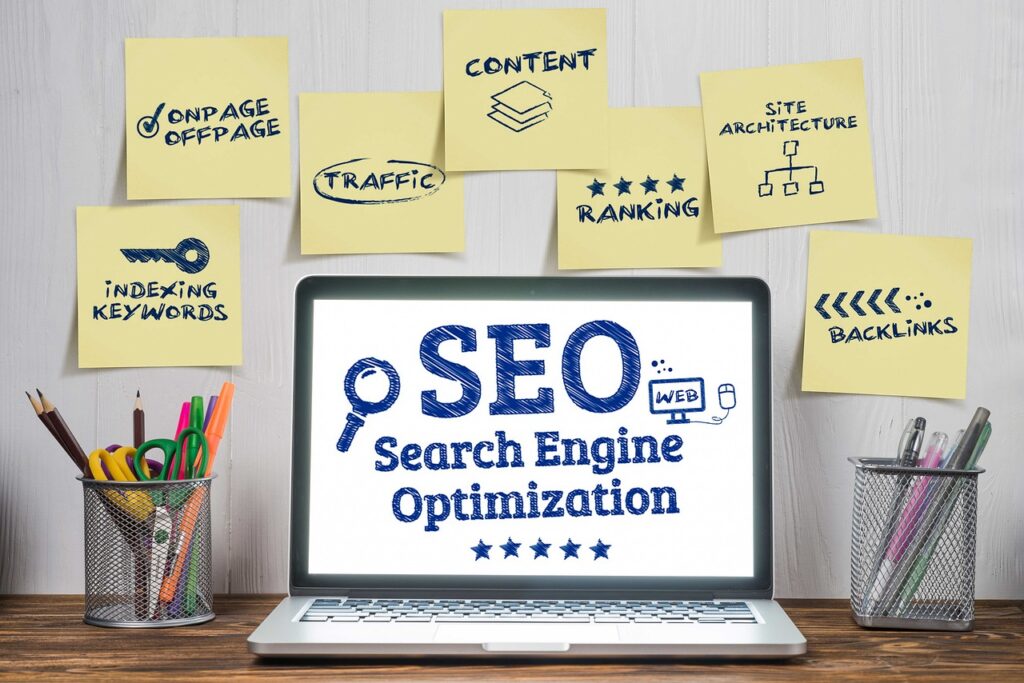In the digital age, businesses are constantly vying for online visibility. This is where SEO comes into play. But what is SEO, and why is it so crucial for businesses? In this comprehensive guide, we will explore the concept of SEO, how it works, and why it’s an essential strategy for improving online presence and driving organic traffic.
What is SEO?
SEO, or Search Engine Optimization, is the process of optimizing a website to rank higher in search engine results pages (SERPs), such as Google or Bing. By improving the visibility of your website on search engines, SEO helps attract more organic (non-paid) traffic. Essentially, SEO ensures that your website appears when users search for relevant terms, also known as keywords.
So, what is SEO at its core? It is a blend of technical, creative, and strategic efforts aimed at making a website more user-friendly, relevant, and authoritative in the eyes of search engines. By implementing effective SEO techniques, businesses can increase their chances of being found by potential customers, leading to more visibility, clicks, and, ultimately, conversions.
How Does SEO Work?
To truly understand what SEO is, you need to grasp how search engines function. Search engines like Google use algorithms to crawl, index, and rank websites. These algorithms are designed to deliver the most relevant and useful results to users based on the search queries they input. SEO involves optimizing various aspects of your website so that search engines can easily find, understand, and rank it.
Here’s a breakdown of the key components of SEO:
Keyword Research
Keywords are the foundation of SEO. They are the terms and phrases that users type into search engines when looking for information. Understanding the right keywords for your business helps you create content that answers users’ queries. A good SEO strategy involves researching high-traffic, low-competition keywords that are relevant to your niche.On-Page SEO
On-page SEO refers to the optimization of content and HTML source code on your website. This includes optimizing meta tags, headings, URL structures, and using the right keywords in the content. High-quality content that answers user questions, along with optimized images, internal linking, and fast page load times, all contribute to better rankings.Off-Page SEO
Off-page SEO focuses on building authority and trust through external efforts. One of the main components of off-page SEO is link-building, which involves obtaining backlinks from other reputable websites. Backlinks signal to search engines that your site is credible and authoritative. The more high-quality backlinks you have, the more likely your site is to rank well.Technical SEO
Technical SEO involves optimizing the backend of your website to ensure that it is easily crawled and indexed by search engines. This includes improving site speed, ensuring mobile-friendliness, using proper URL structures, and creating an XML sitemap. A technically sound website is essential for better search engine rankings.Content Creation
High-quality, relevant content is the heart of SEO. Search engines prioritize content that provides value to users. Content should be informative, engaging, and optimized with the right keywords. Regularly updating your website with fresh content (such as blogs, articles, videos, and infographics) helps you stay relevant and improve your SEO performance.
Why is SEO Important?
Now that we’ve covered what SEO is, let’s explore why it’s so important for businesses:
Increases Organic Traffic
The primary goal of SEO is to increase organic (non-paid) traffic to your website. When your site ranks higher in search results, more users are likely to visit your website. This can lead to more leads, sales, and overall business growth.Builds Credibility and Trust
Websites that rank at the top of search engine results are often viewed as more credible and trustworthy by users. Effective SEO helps you build authority in your niche by obtaining quality backlinks, publishing informative content, and maintaining a user-friendly website.Cost-Effective Marketing Strategy
Compared to paid advertising, SEO is a cost-effective strategy for long-term success. While it requires an upfront investment of time and resources, the results of SEO efforts are lasting, often driving traffic for months or even years without ongoing costs.Better User Experience
SEO isn’t just about optimizing for search engines; it’s also about creating a better user experience. Fast-loading pages, mobile responsiveness, easy navigation, and relevant content all contribute to a positive user experience. A website that offers a great user experience will perform better in search rankings.Competitive Advantage
Many businesses are already leveraging the power of SEO to rank higher in search results. If you’re not investing in SEO, you risk falling behind your competitors. By optimizing your website and staying up-to-date with SEO trends, you can stay ahead of the competition and attract more customers.
Conclusion
So, what is SEO? It’s a powerful digital marketing strategy that focuses on optimizing your website to rank higher in search engine results, attract organic traffic, and build credibility. By implementing the right mix of keyword research, on-page and off-page SEO, technical optimization, and content creation, businesses can improve their online visibility and drive sustainable growth.
In today’s competitive online landscape, investing in SEO is essential for businesses looking to thrive. It not only helps attract more visitors but also enhances user experience and builds long-term credibility. Start optimizing your website today and unlock the full potential of SEO for your business!

